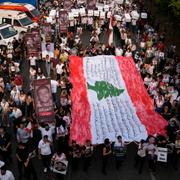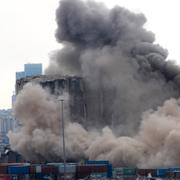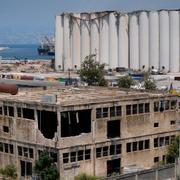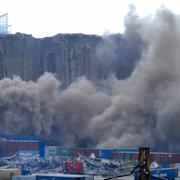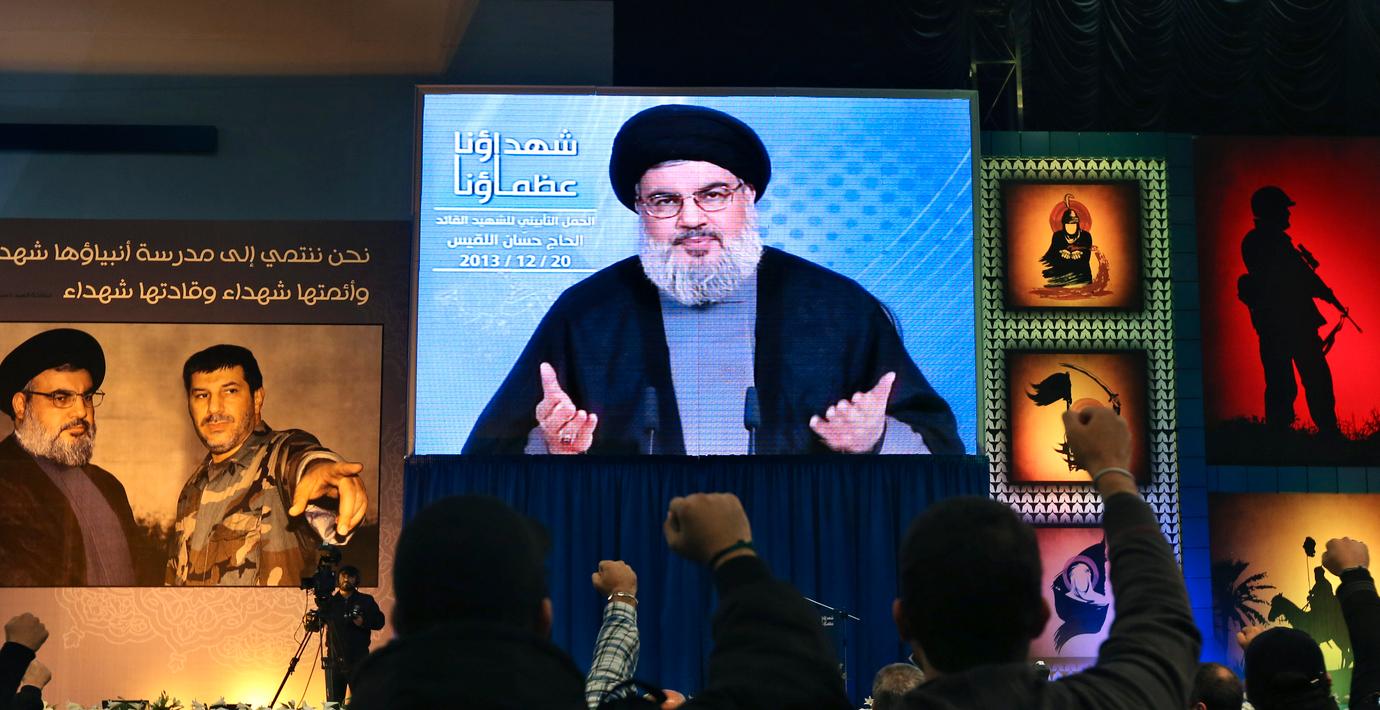
Hizbollahs ledare förnekar inblandning i explosionen
Ledaren för den Iranstödda shiarörelsen Hizbollah förnekar att hans organisation ska ha haft någonting att göra med explosionerna i Beiruts hamn, rapporterar AFP.
– Vi har ingenting i hamnen. Ingen vapendepå, ingen robotdepå, inte gevär, inte bomber, inte ammunition eller ammoniumnitrat, säger ledaren Hassan Nasrallah i ett tv-sänt tal.
Nasrallah säger också att han vill se sammanhållning och lugn i Libanon och varnar för att politisera frågan om vem som bär ansvaret för den förödande explosionen.
bakgrund
Hizbollah
Wikipedia (en)
Hezbollah (; Arabic: حزب الله Ḥizbu 'llāh, literally "Party of Allah" or "Party of God"—also transliterated Hizbullah, Hizballah, etc.) is a Shia Islamist political party and militant group based in Lebanon. Hezbollah's paramilitary wing is the Jihad Council, and its political wing is the Loyalty to the Resistance Bloc party in the Lebanese parliament. Since the death of Abbas al-Musawi in 1992, the group has been headed by Hassan Nasrallah, its Secretary-General. The organization or its military wing are considered terrorist organizations in eighteen countries, as well as by the Arab League and the European Union (see section below).
The idea of Hezbollah arose among Lebanese clerics who had studied in Najaf, and who adopted the model set out by Ayatollah Khomeini after the Iranian Revolution in 1979. The organization itself was established as part of an Iranian effort, through funding and the dispatch of a core group of pasdaran instructors, to aggregate a variety of Lebanese Shia groups into a unified organization to resist the Israeli occupation, and improve the standing and status of the long marginalised and underrepresented Shi'ite community in that country. A contingent of 1,500 pasdaran instructors arrived after the Syrian government, which presided over the Syrian occupation of Lebanon's eastern highlands, permitted their transit to a base in the Bekaa valley.Hezbollah's 1985 manifesto listed its objectives as the expulsion of "the Americans, the French and their allies definitely from Lebanon, putting an end to any colonialist entity on our land", the submission of the Christian Phalangists to "just power", bringing them to justice "for the crimes they have perpetrated against Muslims and Christians", and permitting "all the sons of our people" to choose the form of government they want, while calling on them to "pick the option of Islamic government".Hezbollah organised volunteers who fought on the Bosnian side during the Bosnian War. Hezbollah's military strength has grown so significantly since 2006 that its paramilitary wing is considered more powerful than the Lebanese Army. Hezbollah has been described as a "state within a state" and has grown into an organization with seats in the Lebanese government, a radio and a satellite TV station, social services and large-scale military deployment of fighters beyond Lebanon's borders. Hezbollah is part of the March 8 Alliance within Lebanon, in opposition to the March 14 Alliance. Hezbollah maintains strong support among Lebanon's Shi'a population, while Sunnis have disagreed with the group's agenda. Hezbollah also finds support from within some Christian areas of Lebanon that are Hezbollah strongholds. Hezbollah receives military training, weapons, and financial support from Iran and political support from Syria. Hezbollah and Israel fought each other in the 2006 Lebanon War.
After the 2006–08 Lebanese protests and clashes, a national unity government was formed in 2008, with Hezbollah and its opposition allies' obtaining eleven of thirty cabinets seats, enough to give them veto power. In August 2008, Lebanon's new Cabinet unanimously approved a draft policy statement that recognized Hezbollah's existence as an armed organization and guarantees its right to "liberate or recover occupied lands" (such as the Shebaa Farms). Since 2012, Hezbollah has helped the Syrian government during the Syrian civil war in its fight against the Syrian opposition, which Hezbollah has described as a Zionist plot and a "Wahhabi-Zionist conspiracy" to destroy its alliance with Assad against Israel. It has deployed its militia in both Syria and Iraq to fight or train local forces to fight against the Islamic State of Iraq and the Levant (ISIL). The group's legitimacy is considered to have been severely damaged due to the sectarian nature of the Syrian Civil War in which it has become embroiled.
Omni är politiskt obundna och oberoende. Vi strävar efter att ge fler perspektiv på nyheterna. Har du frågor eller synpunkter kring vår rapportering? Kontakta redaktionen
